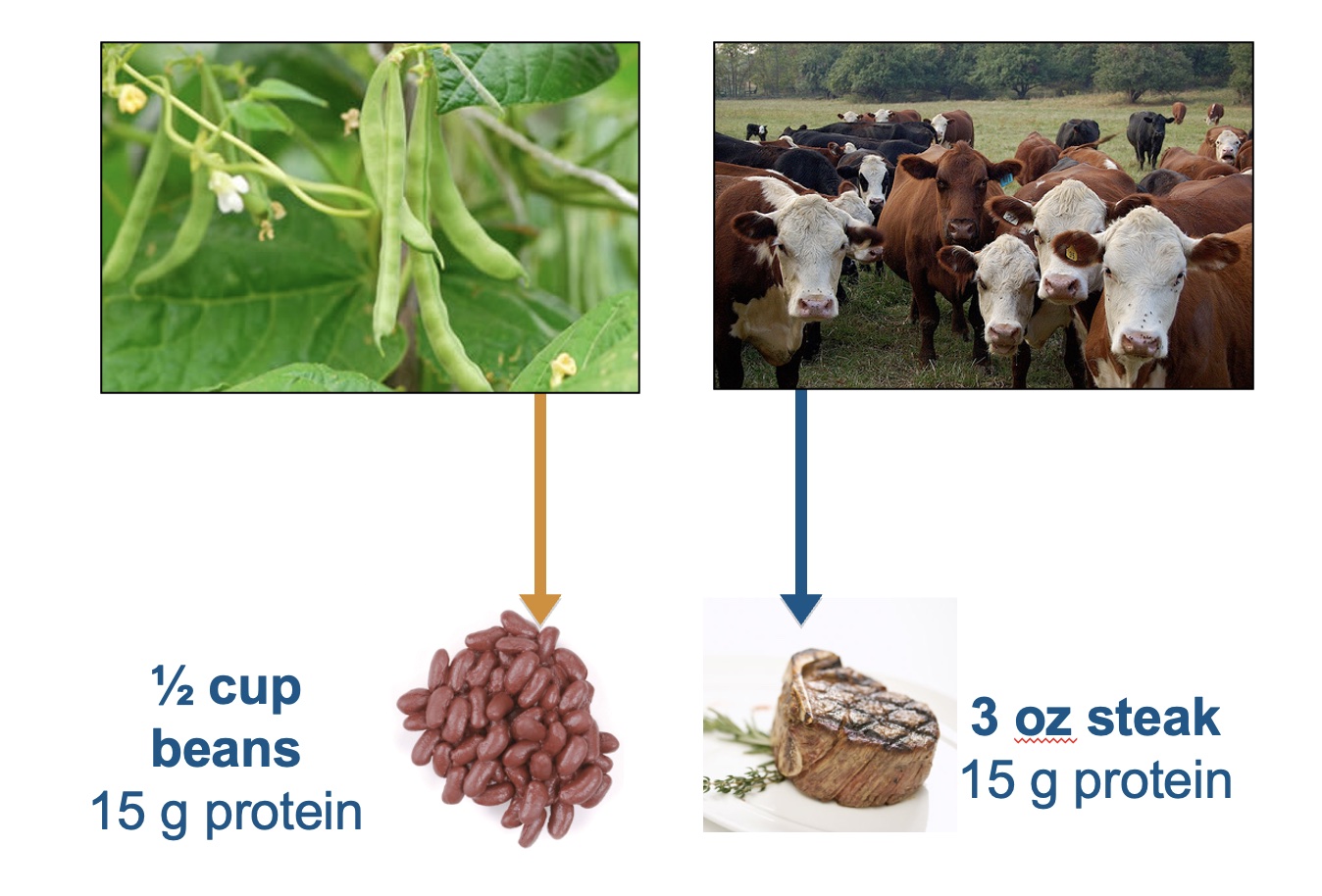Answer
There are two main contributors to an individual nitrogen footprint: transportation and food.
1. Diet
The process of producing beef is incredibly nitrogen intensive. Growing the wheat that is used to feed the cows and then tending to the cows are both nitrogen-intensive processes. Therefore, if you can eliminate beef from your diet, you will be making a major reduction in your personal nitrogen footprint. Although poultry also has a substantial nitrogen footprint, it is far better to eat chicken or turkey than beef. Ultimately, being vegan or vegetarian will make the biggest dent in your nitrogen footprint, but there are ways to reduce it through diet without eliminating meat completely.

Beans are a wonderful substitute for meat, with a comparable protein content.
2. Transportation
The combustion of gasoline releases nitrous oxides that end up as greenhouse gases in the atmosphere that contribute to the greenhouse effect and ultimately climate warming. Therefore, reducing reliance on personal vehicles and opting instead to walk, bike, or take public transportation will have a positive effect on your nitrogen footprint.

